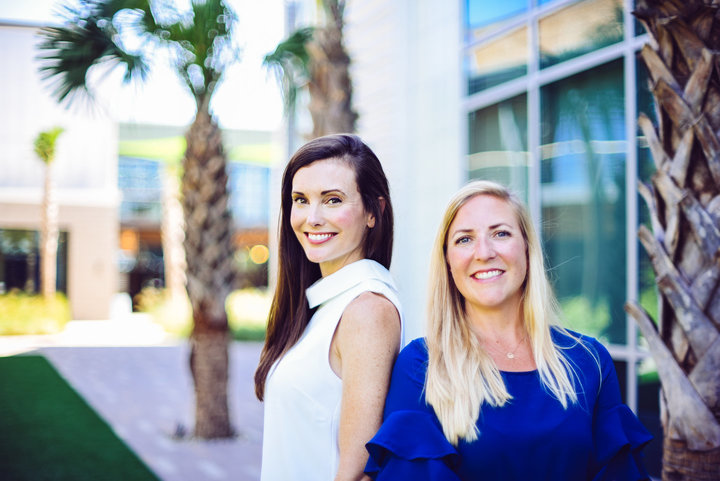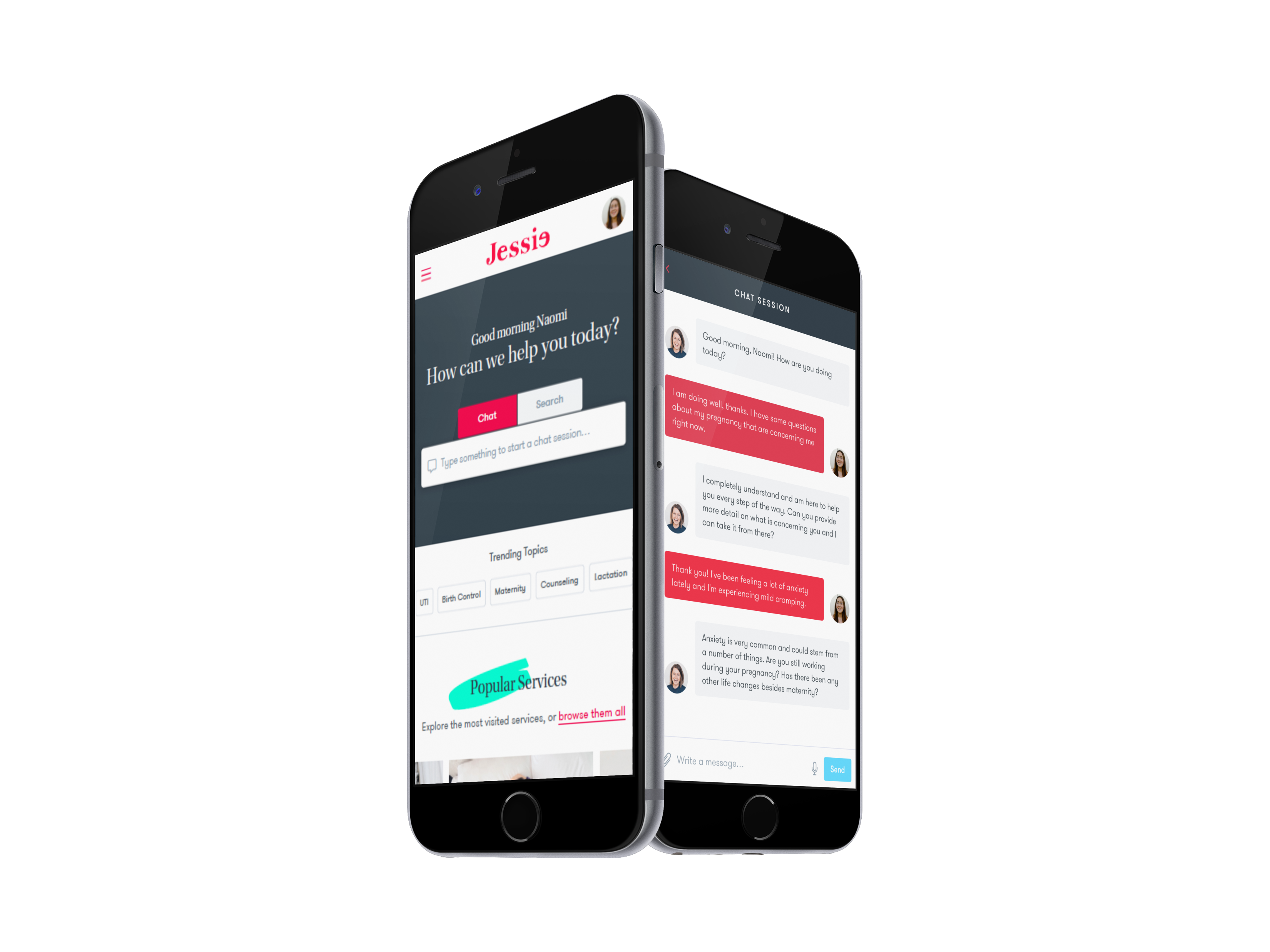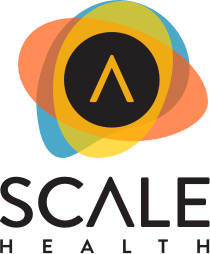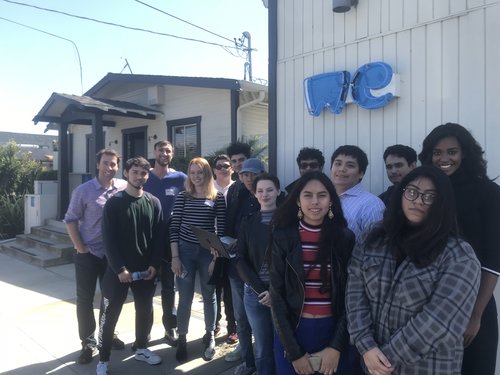2018 was hailed as the “Year of the Woman” thanks to a wellspring of social movements, record-breaking political victories, and corporate leadership shake-ups (not to mention Chrissy Teigen’s social media prowess). But as two femtech entrepreneurs obsessed with solving gender disparities in healthcare, we feel there’s still a long way to go.

The term “femtech” was coined in 2016 by Ida Tin, the founder of period tracking app Clue, when the digital health sector first started gaining momentum. And it doesn’t just apply to startups creating cycle trackers or fancy fertility bracelets (yes, those are a thing); femtech includes an array of technologies and products that are designed to improve all aspects of women’s healthcare and well-being, making everything from reproductive and sexual health to mental health, dermatology and wellness more accessible and affordable than ever before.
As the ScaleLA community knows, healthcare is often at the root of other systemic societal challenges. Which is why we believe it’s one of the most important opportunities for innovation.
If you’ve ever browsed insurance plans (take a deep breath, we didn’t mean to scare you), struggled to get a clear diagnosis during a hurried doctor’s visit, or navigated birth control, fertility or maternity costs for yourself or a partner, you know firsthand the gender disparities that women encounter when it comes to health and wellness. These disparities affect our quality of life, our careers, our families and our financial standing.
Our team has been involved in healthcare advocacy and the delivery of personalized medicine since 2007. After launching a marketplace for women’s genetic testing, we were accepted into the 2018 Cedars-Sinai Accelerator here in Los Angeles to continue building our then two-year-old business. Early into the program, we recognized an important opportunity to address some of the root causes of gender disparities in health — cost and accessibility — by leveraging online health versus in-person doctor visits. We collaborated with large insurers, self-insured employers, and women around the country to create Jessie, an online platform that streamlines access to women’s digital health services and provides clarity and support through personalized chat.

Here’s why we saw a need for this type of platform, and for femtech innovation, in general: According to Frost & Sullivan, 80% of household healthcare spending is done by women, yet more often than not, our unique healthcare needs are underserved. Women have historically been left out of clinical studies (the FDA didn’t allow female participants until 1993!), just 4% of healthcare research and development funding is allocated towards women’s health products and services, and femtech innovations only receive a tiny percentage of VC funding (a mere 1.4% of healthcare venture capital is allocated to solutions in women’s health).
But this isn’t a rant. Rather, it’s a rallying cry. And a look ahead at the progress in-store for this emerging sector. Progress that means meaningful change in the way women find, access, and receive care.
Says Forbes columnist Reenita Das, “With more than $1 billion in funding between 2015 and 2018, femtech is set to be the next big disruptor in the global healthcare market.”
Not only are many femtech companies shifting the digital healthcare landscape, they’re driving broader social change. Employers are rising to the demand for more inclusive and personalized employee health benefits.
Take Progyny, for example, a leading femtech company that offers smarter fertility benefits to self-insured employers. The service helps workplaces provide fertility assistance to their employees, an increasingly important (and life-changing) benefit for couples, LGBTQ+ employees, and women embarking on parenthood. Employers can offer packages that include IVF coverage, medication, access to top fertility clinics, and virtual support from counselors and providers. Progyny counts several Fortune 500 clients, including Microsoft, Salesforce, and Pinterest and they’re continuing to create open conversation, acceptance and access in a space that has been historically shrouded in confusion and high costs.
Similarly, San Francisco-based Carrot Fertility is redefining how to plan, deliver, and pay for fertility care, working to alleviate the financial burden and uncertainty during an already emotional process. The company was launched after co-founder Tammy Sun spent nearly $35,000 to freeze her eggs (you can read more about her story in Forbes). They’ve essentially created a tech-enabled marketplace for fertility benefits, helping companies develop fixed sum packages (usually around $10,000) based on the average costs and results from fertility-related medical-service providers around the world. Because it’s a clear-cut, up-front dollar amount, employees know exactly what treatment they can afford and employers know exactly how much they’ll need to cover.

There has also been a surge of femtech direct-to-consumer brands working to make care delivery as convenient and comfortable as any other user-friendly e-commerce experience. And the continued growth of the industry is breaking down stigma, encouraging open conversation, and pushing for increased funding and research in the women’s health sector.
One of our partners, for example, is myLAB Box, a Los Angeles-based startup reinventing the way people access and experience sexual health screenings. Through their e-commerce platform, users can order affordable at-home STD screening kits, a more private and convenient alternative to traditional testing at the doctor. The tests take less than five minutes, and if anything comes back positive, users have the option to access a free physician consultation online.
Consumer-facing apps are also improving women’s care delivery, management, and overall well-being. Ovia Health has developed mobile solutions for fertility, pregnancy, and parenting, giving women a convenient and personalized way to manage their entire parenting journey. Not only do the apps include data-driven tracking (think: accurate predictions for period and ovulation, updates on baby’s growth), they offer access to food and medication lookups, verified resources and articles, and an anonymous community of women experiencing similar ups-and-downs. We love that Ovia uses the insights gained from its user base to drive additional research in women’s health and create change in how companies approach working motherhood.
At Jessie, we’re connecting with companies like these on a mission to level the playing field in healthcare for women. As the femtech sector grows and more products and platforms hit the market, our goal is to empower women to make confident decisions about their care, access the services they need, when they need them, and get personalized guidance along the way. You can learn more about our work and sign up for the beta launch at: https://www.hellojessie.com/.
We’re excited about making a real difference in healthcare delivery for women, and we’re thrilled to share the journey with ScaleLA. Throughout 2019, we’ll share insights on emerging femtech companies and the work they’re doing to make health and wellness more accessible, personal and affordable for women in Los Angeles and beyond.
About the authors:
Amy Domangue and Kerranna Williamson are the Co-Founders of Jessie, a Techstars and Cedars-Sinai-backed digital women’s health company. The two are experts in healthcare marketing and innovation, having worked in commercialization, cancer advocacy, and genetic testing for over 10 years. After connecting at a shared workspace in Charleston, SC, the duo merged their expertise and networks to launch a women’s health genetic marketplace in 2016. In 2018, Amy and Kerranna relocated to Los Angeles to expand the business to include a full range of digital health services for women. Today, Jessie has grown into one of the largest networks of online women’s health services, improving the way women access, experience, and manage their care.




